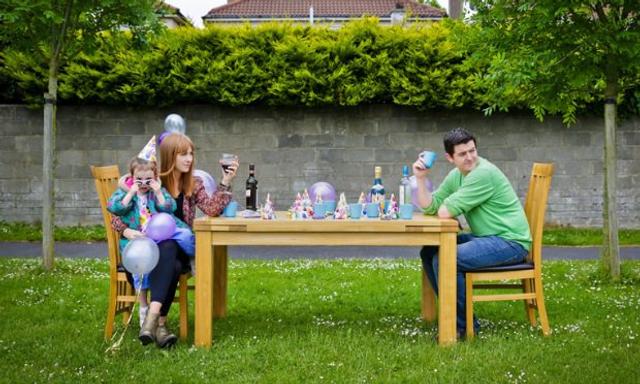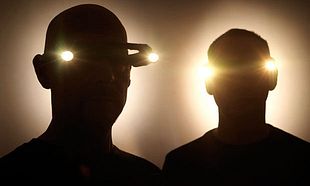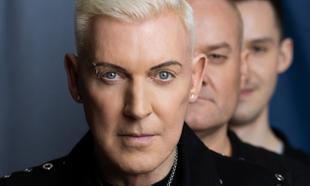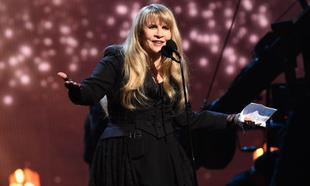It's been three years since they burst onto the theatre scene with Fight Night but Rise Productions are back with their ‘difficult second album’, The Games People Play which runs at The New Theatre from the 17th - 21st of September. “It’s funny, because in many respects those three years feel like they have flown by in an instant,” Aonghus Óg, star and face of the company tells me. “But then, when I look at who I was back then, as an actor or theatre maker or whatever it is you call someone like me, that fella seems light years away from who I am now.”
It’s not like he has been idle. ”We toured Fight Night more extensively than pretty much any other company in the country, and then subsequently toured it to a number of international festivals. We completely re-imagined it as a piece for radio, created a brand new site-specific show for Dublin Theatre Festival and of course there was the whole podcast madness.”
What started on a laptop in Peter Daly’s kitchen would become the Number 1 Arts podcast in the country, and even ended up on the drama syllabus at Yale University, But Aonghus was keen to get back to what he loved best.
"We’re not a 'grab a gang of mates and devise something in two weeks' kind of company. The idea for this show has been rattling round my head for about five years now, and this script has been in ongoing active development between myself and Gavin Kostick for nearly 18 months.”
The Games People Play is a radical reworking of the Tír Na n-Óg myth. Taking those two iconic Irish characters, Niamh and Oisín, or "our culture’s most famous lovers" as Aonghus describes them, the show explores what would happen to them if you put them in a three bed semi in Drumcondra.
“Essentially, it’s using them as a starting point of shared understanding for an audience, so we can get right to the meat of the play early on, without having to worry so much about exposition or sketching characters.”
They’ve distilled, deconstructed and updated the original myth, with the hope that, when these people are on stage, it should feel both completely fresh and deeply familiar. “Then they go at it, in a good old fashioned family-drama style, thrashing out the reality of their lives and their relationship and seeing if they can survive their own personal crisis.”
Aonghus has been obsessed with the story for years now. “Mostly because I still can’t fully get a handle on it. I’ve read as much as I can on it, from the Lady Gregory books to the Marie Heaney version, and everything in between. I’m trying to work out what the 'moral' is, and I haven’t… yet. Mythologies are so important for us as a society, and the stories we choose to hold on to as a collective say an awful lot about us. Irish mythology is morally ambiguous at best, and often morally dubious. In the original, Oisín doesn’t technically do anything wrong, and yet still gets screwed over by the fates. What message does that send out to us?”
He sees this play as part of the Rise Productions "Dynasty and Destiny” trilogy (with Fight Night and another piece). “Fatherhood is a less defining issue for Oisín than it was for Dan Coyle. It’s much more a play about the couple this time, rather than 'a family,' even though the children provide the catalyst for much of the conflict."
He believes that this is the one story about the crisis that we haven’t seen on an Irish stage yet. (As Roise Goan, outgoing artistic director of the Fringe, calls it "THE state of the nation play for the negative equity generation.") “We’ve had shows about 20-somethings jetting off to Australia and Canada, and shows about 50-somethings thrown on the scrapheap, but no one has told the story of what the reality is for me and my mates yet. My brother is 27, and almost all of his friends have gone. I’m 32 and almost all of my friends have stayed. There’s a seismic shift over those five years. We’re the ones who stayed. We’re the ones still here, slogging it out, sucking it up, struggling to make it through. We’re the ones drowning in negative equity, the ones whose parents pushed to 'get on the ladder,' and for many, the pressures of making ends meet have them at breaking point. Ever wonder why so many young men are killed in single vehicle accidents these days?”
Parts of this show will be particularly difficult to watch, particularly for couples in the same boat as Niamh and Oisín, and that’s partly the reason for overtly going for these iconic characters. It allows us to see them as the “Everyman,” in a way allows the audience to cast themselves in the play.
As we enter Goan’s final fringe I ask him about his fave fringe related memory is?
“I remember seeing Megan Riordan’s Luck in Pantibar, and playing Blackjack against her as part of the show for shots of Jameson - shots I could choose to drink myself, or make her drink. Megan’s from Vegas and has worked as a professional gambler, but it was her who taught me Blackjack strategy, so neither of us could win, meaning that 'doubles or quits' kept pushing the whiskey wager up. In the end I won, she downed an obscene amount of whiskey and gave an electric performance for the rest of the show, though she admits now she remembers very little of it!”
Between Major Barbara at the Abbey and The Games People Play, Aongus has been pulling 18-20hr days for the last month or so, and that’s set to continue until the end of the Fringe so he is getting to see very little in this year’s festival. “I’m even missing (director) Bryan Burroughs‘ Beowulf: The Blockbuster, which is a sin that should be punishable by death.”
The Games People Play runs in The New Theatre from 17th – 21st September. Tickets: €12 - €14. For more info and to book tickets go to www.fringefest.com/programme/the-games-people-play
Tickets are also available for the showing of The Games People Play on the September 23rd - 28th at 8pm at the Viking Theatre via vikingtheatredublin.com or 087 1129970.










































































